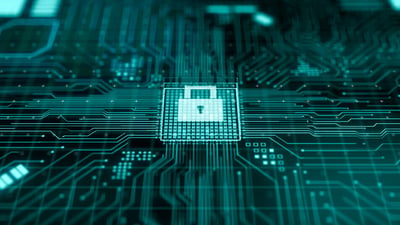Utility Cybersecurity Solutions: Protecting Critical Infrastructure
Utilities play a crucial role in delivering essential services such as electricity, water, and gas to millions of people. However, as these systems become increasingly digital, they also become more vulnerable to cyber threats. Implementing robust cybersecurity solutions for utilities is critical to protecting infrastructure, preventing service disruptions, and ensuring the security of sensitive data.
The Growing Cybersecurity Threats in the Utility Sector
Cybercriminals and nation-state attackers frequently target utilities due to their critical importance. Threats such as ransomware, phishing attacks, insider threats, and vulnerabilities in industrial control systems (ICS) can lead to devastating consequences, including prolonged outages and financial losses. A strong cybersecurity strategy is essential for maintaining resilience in this high-risk environment.
Did You Know?
Did you know that cyberattacks on utility providers increased by 60% in the past two years, with many breaches caused by outdated security practices?
Key Cybersecurity Solutions for Utilities
1. Real-Time Threat Detection
Continuous monitoring of IT and operational technology (OT) systems enables utilities to detect and respond to cyber threats before they cause damage.
2. AI-Driven Security Automation
Artificial intelligence (AI) enhances cybersecurity by identifying anomalies, predicting threats, and automating responses to mitigate risks quickly.
3. Network Segmentation
Separating IT and OT networks prevents cyber threats from spreading across different infrastructure components.
4. Identity and Access Management (IAM)
Implementing strict access controls ensures that only authorized personnel can access critical utility systems.
5. Incident Response and Recovery
Utilities must have a well-defined incident response plan to contain cyber threats and quickly restore services after an attack.
Benefits of Implementing Strong Cybersecurity in Utilities
1. Enhanced Protection Against Cyber Threats
With proactive cybersecurity measures, utilities can prevent ransomware attacks, data breaches, and unauthorized access.
2. Improved Compliance with Regulations
Utilities must comply with industry regulations such as NERC CIP, NIST, and CMMC to avoid legal penalties and ensure operational security.
3. Reduced Downtime and Service Disruptions
Cybersecurity solutions help utilities maintain service continuity by minimizing the risk of cyber-related outages.
4. Increased Operational Efficiency
Automated security solutions streamline processes, reducing manual workload and improving overall system performance.
5. Strengthened Customer Trust
By demonstrating a commitment to security, utilities can build trust with customers and stakeholders.
How to Strengthen Utility Cybersecurity
To improve cybersecurity in utilities, organizations should:
- Deploy AI-Driven Threat Detection: Utilize advanced monitoring tools to identify threats in real time.
- Implement Network Segmentation: Keep IT and OT networks separate to reduce attack surfaces.
- Adopt a Zero-Trust Security Model: Require strict verification for all users accessing utility systems.
- Ensure Compliance with Industry Standards: Follow NERC CIP, NIST, and other relevant frameworks.
- Train Employees on Cybersecurity Best Practices: Educate staff on recognizing phishing attempts, social engineering attacks, and other cyber threats.
How BitLyft AIR® Provides Cybersecurity Solutions for Utilities
BitLyft AIR® offers cutting-edge cybersecurity solutions for utilities, including AI-driven threat detection, automated incident response, and compliance support. With BitLyft AIR®, utilities can safeguard their infrastructure and prevent cyber threats before they cause damage. Learn more at BitLyft AIR® SIEM Solutions.
FAQs
Why do utilities need strong cybersecurity?
Utilities provide essential services and are prime targets for cyberattacks. Strong cybersecurity measures help prevent disruptions and protect sensitive data.
What are the biggest cybersecurity threats to utilities?
Utilities face ransomware, phishing attacks, insider threats, and vulnerabilities in operational technology systems.
How does AI improve cybersecurity for utilities?
AI-driven solutions analyze network behavior, detect threats in real time, and automate responses to cyber incidents.
What regulatory frameworks apply to utility cybersecurity?
Utilities must comply with regulations such as NERC CIP, NIST, and CMMC to ensure secure operations.
How does BitLyft AIR® support utility cybersecurity?
BitLyft AIR® provides real-time monitoring, automated incident response, and compliance reporting to strengthen utility cybersecurity.





